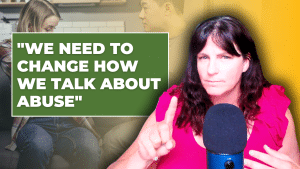
Controversy Around It Ends with Us Movie and How We Talk About Domestic Violence
The topic of domestic violence is one that often remains shrouded in silence, stigma, and misunderstanding. With the recent buzz around the movie adaptation of It Ends With Us, I feel it’s crucial to discuss how we approach this sensitive issue. As a trauma therapist, I want to offer my perspective on what domestic violence is, how to recognize it, and why it’s so important to talk about it in the right way.
What Sparked This Conversation?
The controversy surrounding the It Ends With Us movie adaptation has brought the issue of domestic violence into the spotlight. The story itself is a powerful portrayal of the complexities involved in abusive relationships. It raises an important question: What is the right way to talk about domestic violence, especially when it reaches a broad audience through popular media?
What is Domestic Violence?
Domestic violence is more than just physical harm; it can also include emotional, psychological, and sexual abuse. The impact of domestic violence is far-reaching, affecting not only the victims but also their families and communities. Understanding these different forms of abuse is crucial for providing the right support to those who are affected.
Recognizing the Signs of Abuse
One of the challenges in addressing domestic violence is recognizing the signs. Many people may not realize they are in an abusive relationship until the situation becomes severe. It’s important to know that domestic violence can happen to anyone, regardless of gender, socio-economic status, or education level. Signs can include controlling behavior, isolation, intimidation, and any form of physical harm.
Why Do People Stay in Abusive Relationships?
A common question people ask is, “Why don’t they just leave?” The answer is complex. There are many reasons why someone might stay in an abusive relationship, including emotional, psychological, and financial factors. Feelings of shame, fear of the abuser, and hope that the abuser will change can all play a role. It’s essential to approach these situations with empathy and understanding, recognizing the complex dynamics at play.
How Should We Talk About Domestic Violence?
Talking about domestic violence requires sensitivity and care. It’s not about placing blame on the victim but about offering support and providing resources that can help them make informed decisions. We need to create a culture of empathy, where victims feel safe to speak out and seek help. By educating ourselves and others, we can help break the silence and stigma surrounding domestic violence.
Final Thoughts
Domestic violence is a serious issue that affects millions of people worldwide. By bringing attention to it through discussions like these, we can help create a more supportive and informed society. If you or someone you know is experiencing domestic violence, please reach out to local organizations that offer confidential support and resources. Let’s work together to ensure that everyone can live in safety and without fear.





